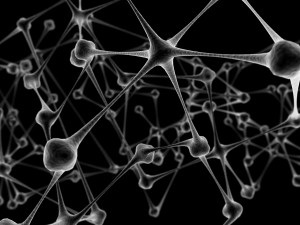 The range of issues people have come to see me for have included:
The range of issues people have come to see me for have included:
- Anxiety, self-esteem & confidence
- Fears & phobias
- Weight loss
- Quit Smoking
- Alcohol & substance dependency
- Control and management of pain and other physical symptoms
- Depression
- Bed Wetting (enuresis)
What is hypnotherapy or trance?
The altered state induced by a hypnotherapist during clinical hypnotherapy is a naturally occurring altered state of consciousness. We have all experienced a trance-like state many times, although we might not have called it hypnosis. If you have ever been caught daydreaming and being oblivious to the things around you, you have been in a hypnotic state. If you have ever been overly engrossed reading a book or in an intricate project and not noticed someone saying something to you or the time passing, you have been in a hypnotic state as well. Another common instance would be driving somewhere and not remembering seeing the usual landmarks or in fact, driving at all. These are all examples of hypnotic-like trances.
The word hypnosis comes from the Greek word meaning sleep and refers to the experience of brainwave activity within specific ranges. There are four brainwave states that range from the most activity to the least activity. When the brain is aroused and actively engaged in mental activities, it generates beta waves. At this level the brain is not particularly receptive to suggestion.
A person experiencing a hypnotic state would demonstrate brainwave activity in one of the other brainwave states. These states are characterized with increasingly slower frequencies from alpha, theta to delta. At the slower frequencies there is greater receptivity to suggestion.
The different brainwave states are common and natural to us all. Men, women and children of all cultures experience them every day.
The unconscious is everything that is not part of our present-moment or conscious awareness. The unconscious mind is a much greater part of our mind than the conscious mind and it is constantly influencing our thoughts and behaviour. The unconscious mind is connected with our body’s basic life-sustaining functions. It is the seat of our past experiences, motivations, beliefs, memories and learning. All of our thoughts and beliefs which control our emotions, habits and behaviour exist in our unconscious mind.
It is important to remember that all real change and learning starts at the unconscious level. In the hypnotic state induced by a hypnotherapist, the unconscious mind has increased receptiveness to suggestion.
What is hypnosis therapy and what does a hypnotherapist do?
Clinical hypnotherapy is a process practiced by a hypnotherapist which usually involves deep physical relaxation, a focus of attention and an intriguingly detached experience of parallel awareness. It is the process of inducing the hypnotic state and offering suggestions directly to the unconscious mind.
A hypnotherapist will help you put the trance state to work to resolve problems or enhance performance. Hypnotherapy is the created opportunity of utilising the trance to bring about positive change.
Some thoughts about my approach and beliefs as a clinical hypnosis therapist
The person experiencing the hypnosis is always in control – I believe that all hypnosis is self-hypnosis. A good hypnotherapist will simply help facilitate that process.
I believe that people don’t like to be told what to do, even when experiencing a trance state during clinical hypnotherapy. I have the conviction that each of us knows at an unconscious level what is best for us, and if it can be suggested that we make changes for our own benefit, the outcome will be positive and lasting. I consider this approach to clinical hypnotherapy to be much more realistic than expecting someone to change just because they are told to.
If you have any questions about how hypnotherapy might assist you please contact me on 3168 1779.
Katina Gleeson

